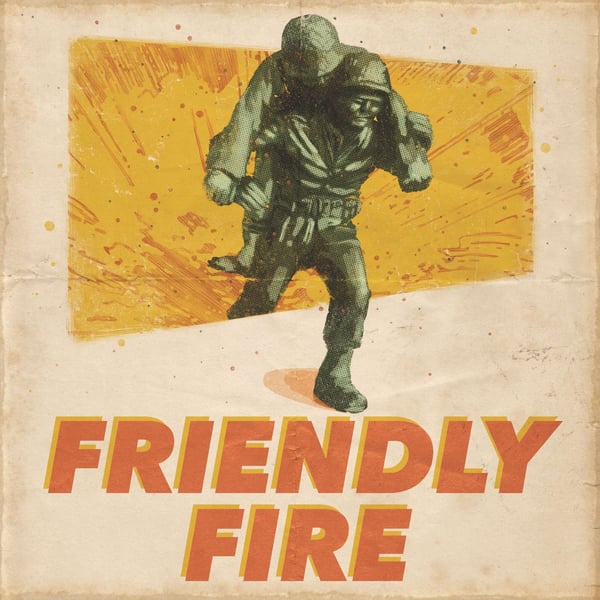Paisan
Friendly Fire
Uxbridge-Shimoda LLC
4.8 • 1.5K Ratings
🗓️ 17 August 2018
⏱️ 89 minutes
🧾️ Download transcript
Summary
Transcript
Click on a timestamp to play from that location
| 0:00.0 | Musilini started out a socialist, an ardent vociferous socialist. |
| 0:09.1 | Like many of his fond Siakla contemporaries, he saw history and politics in Marxist terms as a struggle between |
| 0:15.8 | the ownership class and the great majority of working people. |
| 0:19.3 | But right around the start of World War I, there was a kind of schism in socialism. Nietzsche was in the air, the idea of |
| 0:25.9 | the Uber Mench in market contrast with the idea that only worker solidarity could bring |
| 0:31.0 | forth mankind's true promise. |
| 0:33.8 | And as the great powers lined up against each other in 1914, it wasn't exactly clear what the |
| 0:38.6 | workers of the world were supposed to unite either for or against. |
| 0:43.0 | Passivism? |
| 0:44.4 | Not monarchism, surely, but not capitalist imperialism either. |
| 0:48.6 | egalitarianism and class struggle didn't really |
| 0:51.1 | acquit with the hot-blooded feelings of the man on the street anymore. |
| 0:55.0 | Suddenly it felt like country came first and countrymen even more. |
| 1:00.0 | If Italians were going to war with Austro-Hungary, yes it would be to destroy the Habsburgs, |
| 1:06.4 | not for some abstract global workers' paradise, but for Italy. |
| 1:10.8 | Mussolini invented fascism, at least in the modern sense entirely on the fly out of shards. |
| 1:17.0 | His insight was to upend the dialectic of class struggle |
| 1:21.0 | to unite Italians rich and poor in a shared sense of cultural and racial |
| 1:25.8 | chauvinism. It was not only workers who could form the revolutionary vanguard but |
| 1:30.4 | any patriotic Italian. |
| 1:33.0 | Violence and domination were natural human conditions, necessary prophylactics against rot and |
| 1:38.6 | decadence, and Mussolini institutionalized them as part of a new social order of conformism, xenophobia, |
... |
Please login to see the full transcript.
Disclaimer: The podcast and artwork embedded on this page are from Uxbridge-Shimoda LLC, and are the property of its owner and not affiliated with or endorsed by Tapesearch.
Generated transcripts are the property of Uxbridge-Shimoda LLC and are distributed freely under the Fair Use doctrine. Transcripts generated by Tapesearch are not guaranteed to be accurate.
Copyright © Tapesearch 2025.

